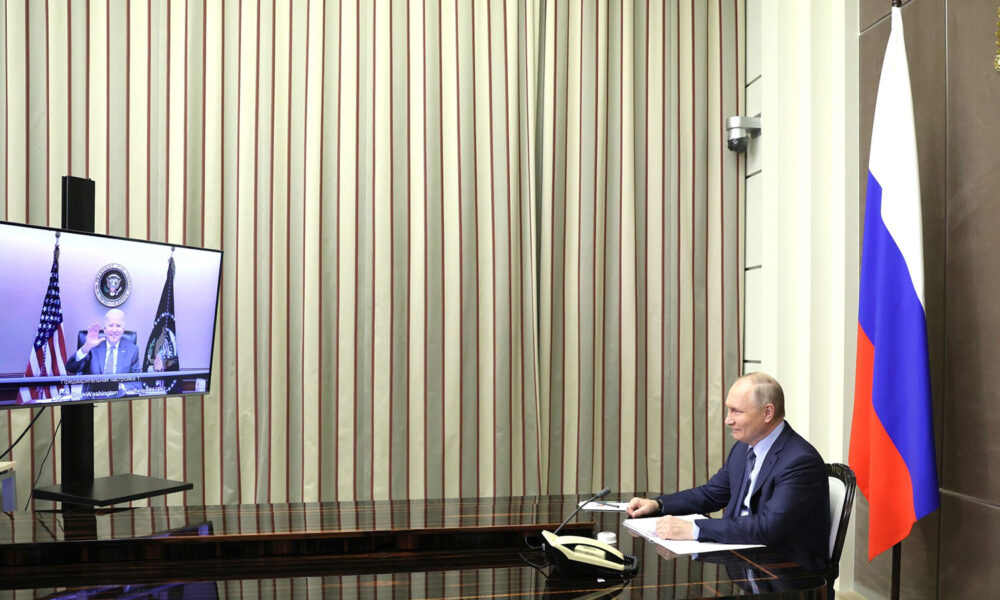The US and Russia were supposed to meet in Cairo a couple of weeks ago to discuss resuming nuclear weapons inspections under the New Strategic Arms Reduction Treaty (New START), but Russia postponed the talks. Inspections have been on hold since March 2020 due to the COVID-19 pandemic, and the US and Russia had not met under the auspices of the treaty since October 2021, before Russia invaded Ukraine. These particular discussions were triggered because in August the US tried to resume on-site inspections, which are provided for in the treaty, but Russia cancelled the US on-site inspection. Until the US and Russia can meet and resolve their difference, these inspections will remain on hold.
The reason for the delay according to Russia’s deputy foreign minister, Sergei Ryabko, was that the United States “did not want to take into account Russia’s priorities, they wanted to discuss only the resumption of inspections.” Ryabkov also said that the conflict in Ukraine was a factor in the postponement. Russian foreign minister Sergei Lavrov was more specific a few days later when he essentially said it was impossible to discuss nuclear stability while the US continued to arm Ukraine.
Why is it important for the US and Russia to talk now?
Arms control is a powerful tool for managing nuclear risk. We need it in this present moment, even in the midst of—and perhaps especially because of—the war in Ukraine, with its heightened risk for conflict between nuclear-armed states. And we need a future with more arms control in it.
But arms control has been faltering for a while. The George W. Bush administration withdrew the US from the Anti-Ballistic Missile (ABM) Treaty with Russia in 2002. In 2018 the Trump administration withdrew from the Joint Comprehensive Plan of Action (JCPOA or the Iran Deal) and a year later from the Intermediate-Range Nuclear Forces (INF) Treaty. In 2020 the Trump administration withdrew from the Open Skies Treaty and was nearly responsible for the expiration of New START. Thankfully, within its first couple weeks in office the Biden administration worked with Russia to extend New START for another five years. It is the last remaining bilateral arms control treaty that we have with Russia. If it expires in February of 2026 without any follow-on treaty being negotiated, there will be no legal constraints on the number of nuclear weapons that both the US and Russia can deploy.
These most recent treaty withdrawals came about because of a general disdain for arms control by some in the security establishment. There is a view that other countries, Russia in particular, do not fully comply with treaties, while the US does. In this frame, treaties constrain the US but not the other party, giving others an advantage. Whether or not Russia cheats is a subject for another time. Right now, I want to consider the value that arms control brings to our international relationships beyond the strict accounting of weapons system numbers and their capabilities.
What is the value of arms control?
Arms control treaties provide opportunities to talk with our adversaries and perceived adversaries. They set up procedures and systems for communicating with each other that benefit us in times of tension—like we are in right now. Arms control treaties allow us to closely observe our adversaries’ activities. They give us insight into what they are deploying and potentially planning for the future. The process of treaty negotiations can include a series of confidence-building measures—like agreements to share information or remove certain sanctions. By negotiating with one another over a treaty we can reduce tensions and prevent escalation.
It’s important to maintain dialogue, even with countries we consider adversaries. The less we talk to one another, the more opportunities there are for misunderstanding and miscalculation. Treaties can provide transparency about our own intentions and our adversary’s intentions, reducing opportunities for misunderstandings.
The US is also obligated, as a signatory of the Nonproliferation Treaty, to “pursue negotiations in good faith on effective measures relating to cessation of the nuclear arms race at an early date and to nuclear disarmament…” As part of the commitment the US made to the international community, the US has a responsibility to negotiate with other nuclear weapon states with the aim of disarmament—whether the conditions for disarmament are ideal or not.
What’s next for US-Russia arms control?
Arms control does require willing negotiation partners and those are sometimes in short supply. However, Russia has, at least rhetorically, acknowledged their commitment to continuing arms control dialogue with the US and “postponed” rather than cancelled this most recent meeting. This may be a sign that arms control is not dead yet.
At the end of the day, there is no possible path towards a nuclear-weapons-free world without the US and Russia agreeing to continued reductions of their nuclear arsenals. Between our two countries, we hold more than 90% of the world’s nuclear weapons. If we want a future without nuclear weapons, we must pursue it with determination, clear eyes, and persistence. We need arms control. We need to lay the groundwork and keep the dialogue in place, so that we have a basis for cooperation when a willing partner arises. The present circumstances will not last forever, and we must be ready to seize the opportunity for progress when it comes.

